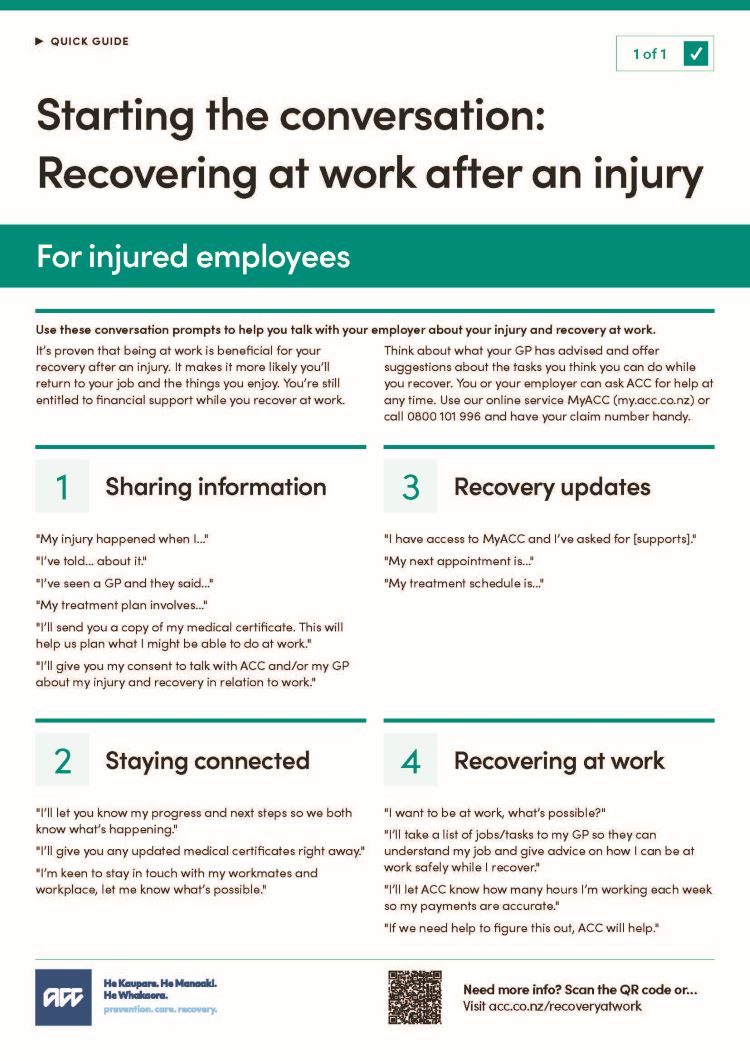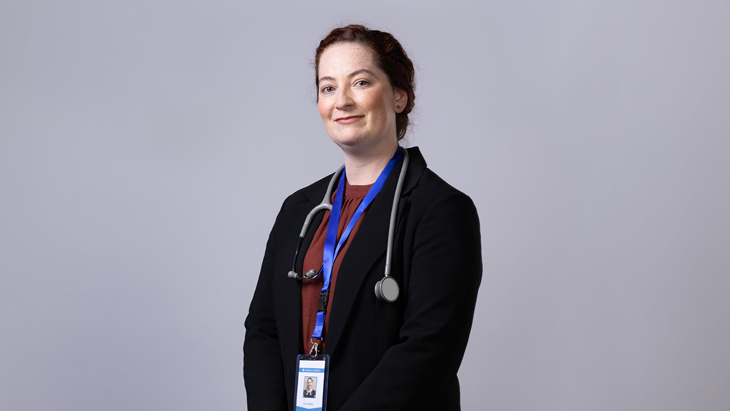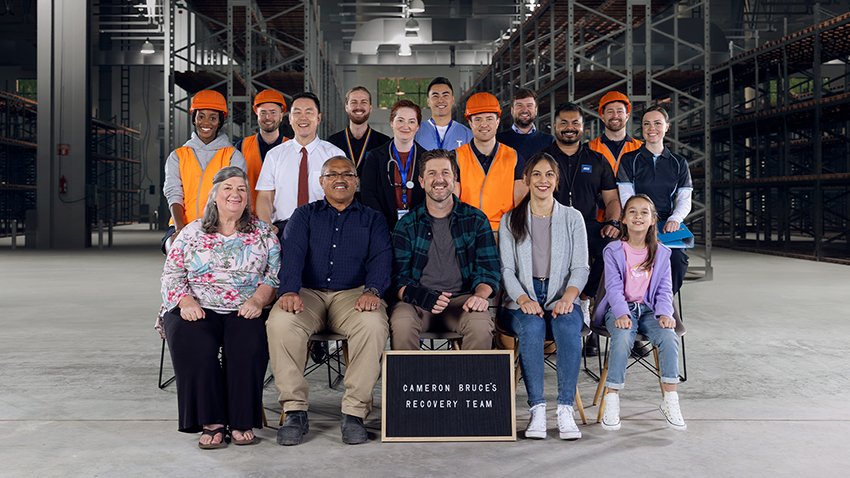Helping your patient recover at work
Work can play an active role in most people’s rehabilitation after an injury. A safe and timely return to work can improve your patient’s physical and mental wellbeing. It can also lead to shorter recovery times.
It takes a team effort to support an injured person to recover at work.
On this page
An introduction to recovery at work
Video transcript for An introduction to recovery at work
Visual
Screen shows Helping your patient recover at work. Clock shows watch time of 2 minutes 40 seconds.
Text displays Dr Bryan Betty, Chair GPNZ
Dr Bryan Betty is sitting in a chair facing the camera. A pot plant, water jug, cup of water and pen and notepad sit on a small table beside him.
Transcript
Dr Bryan Betty: We all know that helping our patients actively recover can help them get back on their feet faster.
There's also strong evidence that staying connected to work is good for a person’s physical and mental wellbeing.
In this video I will introduce you to recovery at work, why it is beneficial for our patients and what you can do to help your patients recover at work.
Visual
Screen shows Why is recovery at work important? Clock shows watch time of 20 seconds
Screen cuts back to Dr Betty in the chair.
Transcript
There is strong evidence that shows work is generally good for our patients physical and mental wellbeing.
Using work as a normal part of a person’s rehabilitation can also lead to shorter recovery times, reduce the perception of disabilities and maintains a skilled and stable workforce.
Visual
Screen shows What is my role? Clock shows watch time of 25 seconds.
Screen cuts back to Dr Betty in the chair.
Transcript
As medical professionals you can help your patients recover at work by: Selecting ‘fit for selected work’ where appropriate. Having a chat with your patient around what to expect while recovering at work. Being open to speaking to the employer and working out a recovery plan with your patient.
Visual
Screen shows What resources are available to help? Clock shows watch time of 28 seconds.
Screen cuts back to Dr Betty in the chair.
Transcript
The ACC website has excellent resources to point your patient to so they can find out more information and feel confident about what supports are available to them while they recover at work.
For medical professionals there is a great section on medical certification and guidance around how to ensure your patient receives the appropriate medical certification that best supports their recovery.
Visual
Screen shows Teamwork makes recovery work? Clock shows watch time of 30 seconds.
Screen cuts back to Dr Betty in the chair.
Transcript
As your patient’s primary care provider, you have an important role in supporting their recovery.
Completing an assessment of their capacity to work plays a key role in helping your patient to recover at work and return to their everyday activities as soon as possible.
And that's the basics of recovery at work.
If you need more information, there are plenty of resources on ACC's website.
Thanks for watching.
Visual
Screen shows How to help your patient recover at work:
Screen changes to roll through four statements: Select ‘fit for selected work’ where appropriate.’ Talk to your patient around what to expect while recovering at work. Be open to speaking to their employer. Work out a recovery plan with your patient.
Screen changes to show For more information and resources visit acc.co.nz/health-providers.
Screen changes again to show the ACC logo and tagline He Kaupare. He Manaaki. He Whakaora. Prevention. Care. Recovery.
Hear from Dr Bryan Betty, Chair of GPNZ, as he talks about the importance of recovery at work and your role as a health provider on the team.
There’s strong evidence that shows work is generally good for physical and mental health and wellbeing. Work can be a valuable component of a patient’s rehabilitation. It can keep them connected to work, maintain their income and overall confidence. It can also provide useful physical activity and a sense of purpose, which all contribute to a better recovery.
A safe and timely return to work not only benefits the patient, but also their whānau and their workplace.
Helping your patient recover at work
If your patient has a non-complex injury, like a sprain or strain, it’s likely they will still be able to work in some way. This could include:
- working reduced hours
- doing alternative tasks
- working in a different environment.
If they can safely work reduced hours or alternative duties as part of their recovery plan, we’ll provide the support they need. This includes weekly compensation, rehabilitation, and in some cases, transport and equipment.
Their employer can pay your patient for the productive hours they work. We can top up these wages with weekly compensation. This means instead of getting up to 80% of their pre-injury income through ACC alone, your patient could earn up to 100%.
If your patient says there are no alternative duties they are still eligible for weekly compensation. We’ve found that most employers are happy to discuss alternative duties or hours for their employee.
Learn more about weekly compensation
Talk about these options with your patient. If they’re unsure about what options are available at work, contact us. We can talk to their employer and look at alternatives with them.
You play an important role
General practitioners are uniquely placed to enable recovery at work. With knowledge of your patient’s pre-injury status you can positively influence expectations of their recovery journey.
GPs play a key role in assessing and documenting a person’s work capacity and communicating this to the patient and their employer. An ACC18 certificate that lists your patient’s abilities while recovering from injury can positively influence the employer’s approach. It can give them confidence to offer the support required to manage a timely recovery at work.
Where known pre-injury health or employment issues exist, you can flag these early. This highlights to us the need for additional support.
We can work with the employer, patient, and healthcare team to support their continued employment. This is by working together on an agreed plan.
We can help with:
- rehabilitation programmes
- specialised equipment and technology to support recovery at work
- assistance with transport to and from work
- occupational workstation assessments
- functional assessments
- specialised vocational medical services
Recovery is optimised when we all work together in the best interests of the patient. Together we can support a safe and effective recovery at work as part of their rehabilitation.

Conversation guide for injured employees
We have guidance for injured people to help them talk with their employer. Direct your patient to this information if you think it may be helpful.
Choosing the right certification for your patient
There may be cases where it's difficult to decide if your patient is ready to return to work, or you may have questions about how your patient’s injury relates to the functional requirements of their job.
Call us or let us know on the ACC18 if you’d like us to contact you. We’ll get in touch and talk to you about referring your patient for an occupational assessment.
Let us know your patient's recovery plan
We’ll use your plan to support your patient's recovery. When you're putting a plan together, it's good to let us know about:
- referrals or investigations they need
- relevant patient notes
- what support you think they might need from us.
Returning to the job they had before their injury
We have a stay at work programme to help your patient get back to their same job. If they need this help, let us know when you complete their ACC18 medical certificate.
You can also get in touch with a Vocational Rehabilitation Service supplier in your region who can organise the referral on your behalf.
Find a stay at work supplier in your area
Find out more about referring a patient for rehabilitation
Support we can offer your patient
There are lots of different ways we can help your patient recover at work. This includes financial support and workplace adjustments. We can help your patient recover at work with a workplace assessment. The workplace assessor will look at what your patient needs to do their job safely.
We can support by:
- topping up their wages with weekly compensation
- transport to and from work
- providing new or modified equipment or technology for the workplace.

